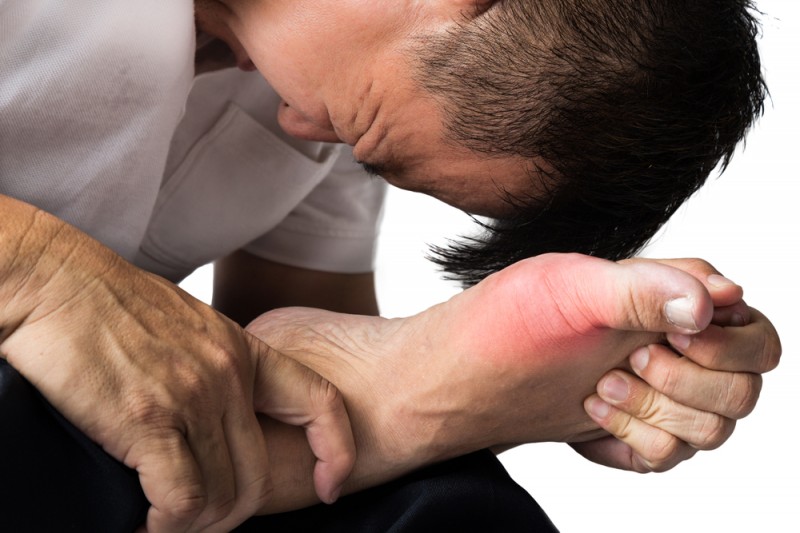
Gout is a very painful condition. It is the oldest form of arthritis as it was first discovered by the ancient Egyptians where it was referred to as the disease of kings because it was often incorrectly linked to the high intake of food and wine, to which only the rich and powerful had access. Nowadays, it is recognised as a condition that can affect anyone.
What is gout?
Gout is the most common type of inflammatory arthritis. It can cause the abrupt onset of pain, and swelling in one or more joints. It can occur in those who have high blood concentrations of uric acid. Uric acid is a by-product of the metabolic breakdown of certain foods we eat. High levels of uric acid can develop due to conditions that cause an overproduction of uric acid or conditions that impair the ability to eliminate uric acid.
What are the symptoms of gout?
Not everyone with an elevated uric acid level will have symptoms of gout. However, when symptoms do occur, gout will typically cause intense swelling, warmth, and pain in one or more joints which is referred to as an acute gout flare. Most gout attacks affect a person's big toe. This condition is called podagra.
What are the causes and risk factors of gout?
The following are risk factors that can increase your chance of developing gout:
- Gout is more common in males than females
- Obesity
- Genetics
- Over consuming alcohol, especially beer and hard liquor. Gout will often be triggered by a night of drinking alcohol, to those who have been diagnosed with the condition
- Eating a diet high in purines (certain meats, seafood, high fructose corn syrup)
- Kidney disease
- Heart failure
- Hypertension
- Taking certain medications that interfere with uric acid levels such as diuretics, laxatives and some immune suppressives
How to treat gout
Here are some steps on how to minimise pain caused by a gout attack:
- Take an anti-inflammatory medication as soon as possible
- Ice and elevate the joint
- Drink plenty of fluids (no alcohol or sweet sodas)
- Call your doctor and make an appointment
- Relax because stress can aggravate gout
- Ask friends and family to help you with daily tasks
- Natural therapy like reflexology or acupuncture
And here are some medications that can help treat acute gout attack:
- Nonsteroidal anti-inflammatory drugs (NSAIDs)
- Corticosteroids
- Cochicine
- Medications for reducing uric acid levels like allopurinol, febuxostat, probenecid and pegloticase
|
Do you have a natural health & wellness business? |









